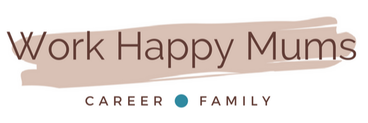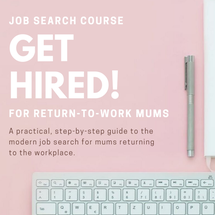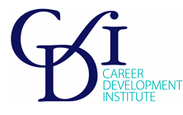|
As a business consultant and coach, I often get asked questions about the process of setting up a business in Germany. There is no road map to starting up - every business is unique - but there are some questions many startup business mums share. Here are the 12 questions I most frequently get asked... 1. Do I have what it takes to start my own business?
A good question! Finding out whether you “have what it takes” to start and maintain a business requires an objective appraisal of your personal skills, abilities, and talents, as well as an assessment of your strengths, weaknesses, and personal situation. Start off by asking yourself the following questions:
Please get in touch if you would like me to send you my Personality Checklist to help you assess your suitability for self-employment. 2. What are the first steps I need to take to get my business off the ground? Once you have decided that starting a business is the right step for you and you have a doable business idea, there are several more steps to be completed before actually starting the business. These steps involve choosing a name and location for the business; opening a business bank account, applying for a tax number and registering the business with the proper authorities. Take your time and plan carefully. Do not rush the process or skip any of the important steps. 3. Do I really need a business plan? A business plan is important because it requires you to go through the process of thinking through all the parts of your business and plan how everything will work. The best business plans aren’t long and complex; they explain only the most important information – what you want to achieve, how you will get there and the things you need to do along the way. Develop a business plan as much for yourself as for the partners, investors, and bankers who may be involved with the business. Please ask for a copy of my 90-day Business Planning template. 4. I would prefer to go into business with someone else. Where can I look for a partner? Founded by a mother for mothers, nie:solo describes itself as “a unique co-working platform for mothers who wish to work together on a freelance or self-employed basis”. This is a useful starting point for finding a business partner if you don’t want to go it alone. nie:solo also offers a skills swap service: . 5. How can I find money to start my business? The Bundesministerium für Wirtschaft und Energie (Federal Ministry for Economic Affairs and Energy) provides a regularly updated list of funding opportunities. This is searchable according to various criteria, including the area in which you live and the industry in which you plan to operate. Should you prefer to speak to a Human Being, they also have a hotline you can call to ask for assistance and advice. If you are based in the German capital, the Investitions Bank Berlin’s 150-page English language business support guide gives general information on founding a business, as well as listing the specific business support programmes that are available in Berlin. KfW offers a business coaching grant called KfW Gründercoaching for those wishing to start their own business. This consists of 75% of the total consultancy fees in the ‘Neue Bundesländer’ (i.e. East Germany, excluding Leipzig and Berlin) and 50% in the ‘Alte Bundesländer’ (i.e. West Germany + Berlin and Leipzig), up to a maximum of 4,000 Euro. You can locate a coach and apply for the grant via their website. 6. Is there someone who can help me find the right location for my business? For those looking to found a business in Berlin, Berlin Partner assists in finding the right business location. The service is aimed at out-of-town and local companies that require office, lab or production space. If you are looking for somewhere to hold a conference, convention, meeting, lecture, or corporate event, Event Sofaoffers a free search service. It also allows you to offer your own space to rent on a Germany-wide scale. 7. What permits or licenses do I need? Licensing and permitting regulations vary with the type of business. Some businesses face minimal or no licensing requirements while others are tightly controlled. To find out what permits or licenses apply to you, contact your local Chamber of Commerce & Industry (IHK/ Industrie-und Handelskammern). 8. Do I need insurance for my business? Germany loves insurance. If you want to stay on the ‘safe side’, speaking to an independent insurance broker about your specific needs is highly recommendable. Keith Tanner from CR&CIE, can give expert advice on all matters related to insurance. He is based in Berlin, but conducts services across Germany via phone and Skype. 9. How do I apply for a tax number? If you are self-employed or a freelancer, you will need a tax number. Note, this is different from the Tax Identification Number you will have automatically received after registering in Germany. To apply for your tax number, you need to fill out a form titled “Fragebogen zur steuerlichen Erfassung”. If you don’t speak German, please contact me and I’ll send you an explanation of how to fill the form in. Your nearest Finanzamt can answer any questions you may have, and you can also hand in the form there. If you don’t need assistance, you can simply send your form to them by post. 10. Would you recommend hiring a tax advisor? Yes, it’s definitely worth the investment. A tax advisor will be able to give you information about business legal structures (Einzelunternehmen, GbR, GmbH etc.) and help you choose the one that best suits you, as well as an explanation of what tax (and VAT) apply to you, and how the tax/ VAT system works. You can search for a tax advisor in your area on the DStV (German Association of Tax Advisers) website. 11. Who can I approach for help and support? “Make it in Germany” describes itself as the multilingual “Welcome to Germany” portal for international qualified professionals. Those interested in immigrating to Germany can find out more about their career prospects and learn how to organise their move to the Fatherland. For those already in the country and wanting to set themselves up in business, the hotline and website can help with valuable information regarding your next steps. The Gründerinnenzentrale, based in Berlin in a female only business center (the Weiberwirtschaft) and funded through European Social Funds is a useful resource for women entrepreneurs, new and old. Along with regular meetups and workshops in Berlin, they provide a whole host of brochures, links and inspiration to get you started in the right direction. Working Mothers Germany is a group of like-minded working mothers for regular online exchange and support across Germany on various hot topics concerning mumpreneurs and working mums. 12. Who can I turn to if I need to find childcare at short-notice? We’ve all been there before: You have an important appointment and the night before, your child gets sick and worse still, your usual babysitter isn’t available. You could cancel but it could mean an opportunity lost. You need the Notfallmamas (‘Emergency Mums’) to come to your rescue! Notfallmamas are either experienced mothers themselves or are qualified nurses, teachers, nursery nurses etc, who can come at short notice to take care of your child. They can even babysit overnight so if that meeting requires travel, you can rest assured that your child is being well looked after at home. They currently operate in Berlin/ Potsdam, Hamburg and Frankfurt. Do you have a question you would like to add? Please do get in touch and I’ll add it to the list. Need more support? Check out the range of programmes I offer for mums wanting to turn their business idea into reality here.
1 Comment
|
Here on the blog we offer insights and tips that will empower you to create a career and life that works for you wherever you are in your parenting journey.
Categories
|
Work Happy Mums: For women whose career and family counts.
|
Member of:
|
Contact me, I'd love to hear from you!
|
Subscribe to my newsletter
|
Work Happy Mums operates under the Career Development Institute Code of Ethics.



